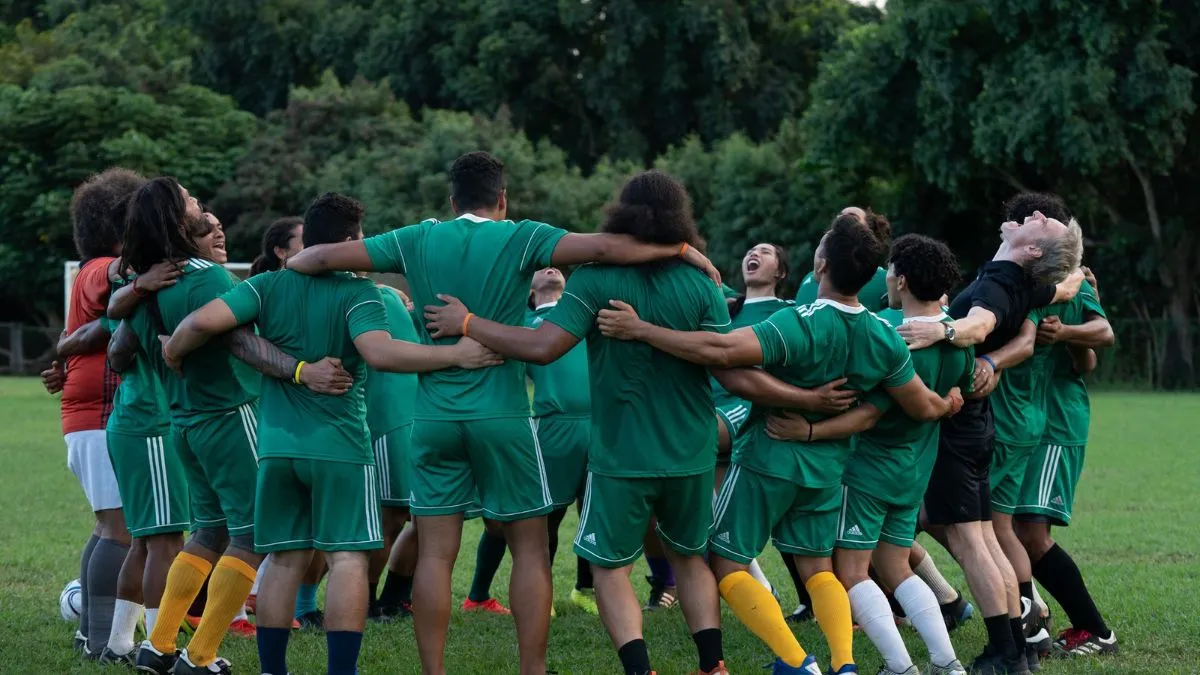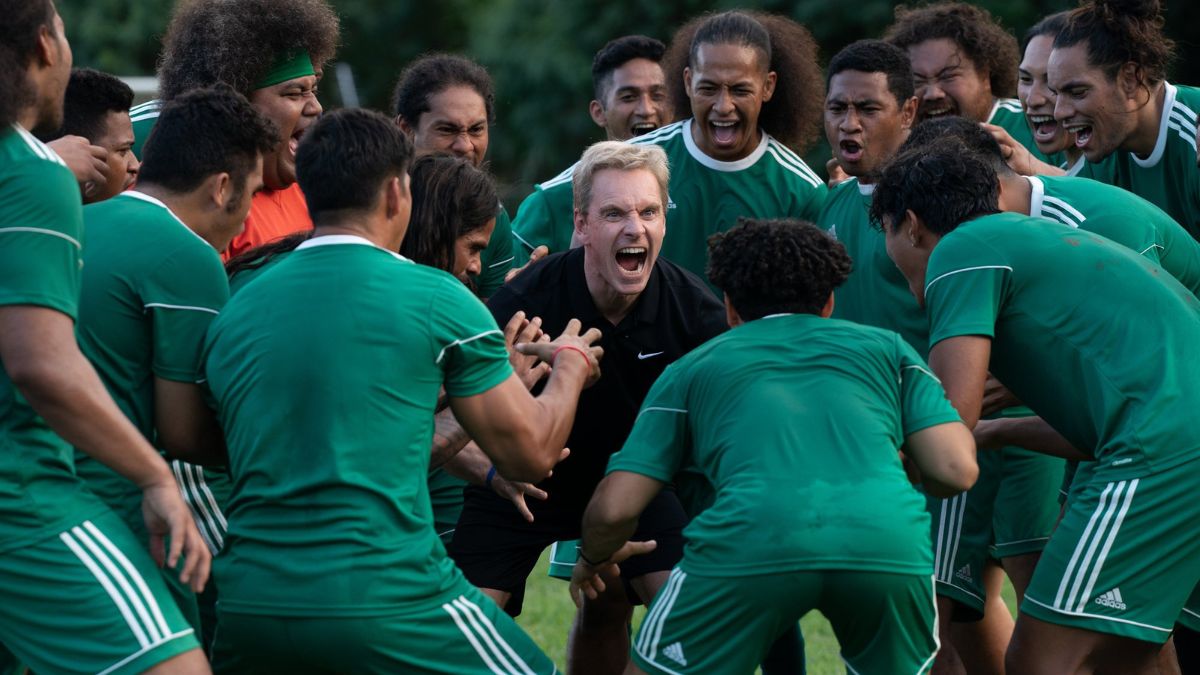If there is one thing that should be respected and celebrated in Taika Waititi‘s work it’s that the New Zealand actor/director/producer polymath loves to have fun – wholesome, genuine, earnest fun. His most recent venture, the sports comedy Next Goal Wins about the American Samoa soccer team and the grumpy American-Dutch coach who leads them to their first-ever win, doesn’t stray far from this sentiment, even if it never rises to the sharpness and preciseness of his previous work.
Through haphazard storytelling and heavy-handed dialogue, there is one message at the core of Next Goal Wins, and it seems to, intentionally or otherwise, describe the guiding principle of Waititi’s career: playing is ultimately more important than winning. The director, who also penned the script with The Inbetweeners creator Iain Morris, upholds that maxim by trying different things, even when not all of them land. The result is a movie filled with isolated geniality, lost in an aimless and messy narrative without a distinctive voice or tone.
The editing and pacing in Next Goal Wins are often awkward and incredibly distracting as if an unfinished draft was accidentally submitted as the real thing. Protagonist Thomas Rongen (a committed Michael Fassbender), undergoes massive emotional and character growth in a short amount of time and with questionable continuity, driven by a melodramatic tragic personal history and an alcohol problem.
Real tribulations borrowed from Rongen’s real life are handled with a strange combination of levity and histrionics. Waititi has finely tuned this formula before in triumphs like Jojo Rabbit, but it falls flat here.

Rongen starts the film as a disillusioned washed-up coach with anger management issues, whose last resort before forced retirement is coaching the struggling American Samoa national team. Famous for losing 31-nil to Australia in the qualifiers for the 2002 FIFA World Cup, and setting the record for the biggest goal gap in international soccer, the squad is composed of amateur players whose multiple day jobs become a recurring, wholesome gag throughout the movie.
The story unfolds more or less how you’d expect. The two sides clash, as the coach has never had to train a team from the ground up before, and doesn’t know where to start. Rongen, who has no plan whatsoever, oscillates between wanting to be the hero who turned the team around and treating the whole thing as a dull job he’s just forced to do. The changes between one approach and the other are sometimes so drastic that you start fearing you somehow missed a scene in the film.
Fassbender’s supporting cast — led by the consistently funny Oscar Kightley as Tavita, the president of the American Samoa Football Federation, and Non-binary actor Kaimana’s heartfelt performance as fa’afafine Jaiyah Saelua (the first trans person to compete in a FIFA World Cup qualifier) — holds the film together. Fassbender has good chemistry with both and their interactions are highlights throughout, with the exception of the questionable scenes where Rongen asks Jaiyah about her genitals and deliberately calls her a “he” as punishment for being distracted in training. Although likely done for the sake of staying true to the real story, the culmination of their arc doesn’t exactly right these wrongs, particularly since the film takes liberties elsewhere with its depiction of true events.

The team works well as a collective character, displaying an unexpected desire to have fun as true enjoyers of the “beautiful game,” instead of being hyper-focused on winning. Connected to them is the sense of community in the town where they live, which is beautifully captured by Waititi. Rooted on shared spiritual beliefs, practices, and a strong sense of identity and national pride, the American Samoans, from the convenience store clerk to the friendly assistant coach, are the true stars of the film.
You believe and become attached to Waititi’s depiction of this town as it overflows with love and a true celebration of an overlooked and underappreciated culture. It’s also in this microcosm that the humor works best, calling on well-intended caricatures and precise visual gags to portray the country’s essence. At one point, Tavita says the main exports of American Samoa are “NFL players and tuna” and disses the other Samoa for being cocky about their 24-hour McDonald’s. Later, when Rongen enters his new rented apartment, we see a shrine to both Jesus and Dolly Parton.

In its best moments, Next Goal Wins is a wholesome, hilarious, inspirational tale with a twist, but it never stays that way long enough to be considered a success. Despite several attempts, some of them desperate, it never quite manages to make its protagonist an interesting character, and as authentic as the world surrounding him feels, it’s not nearly enough to make up for a lukewarm and confusing emotional arc.
Still, Next Goal Wins is a true Taika Waititi gem that only needed some TLC to go from reasonable to great after suffering major delays and reshoots. Thankfully, the director continues to play, not all too concerned with winning, and even if that game plan hasn’t always worked out, when it works, it really works.











Published: Nov 13, 2023 09:26 am